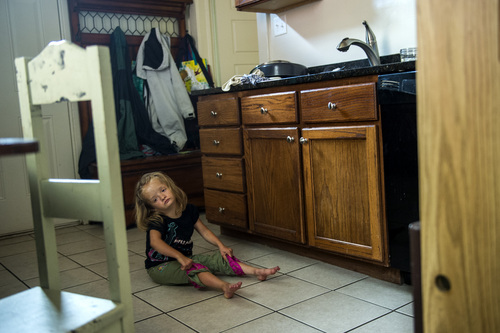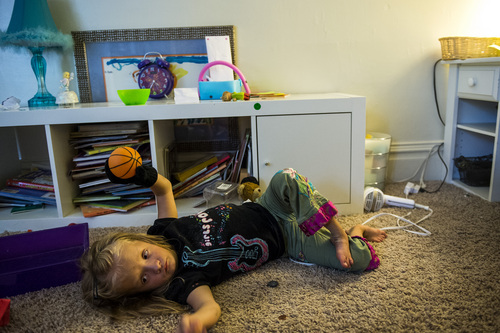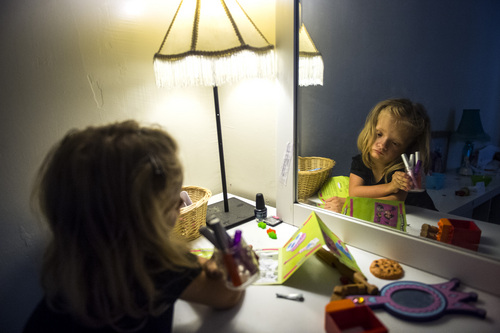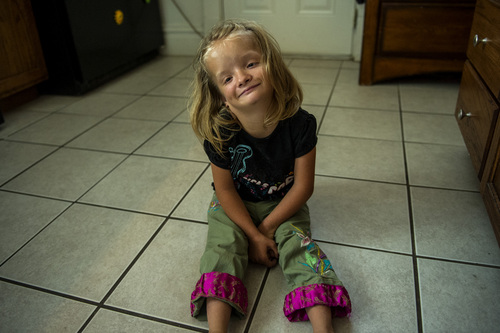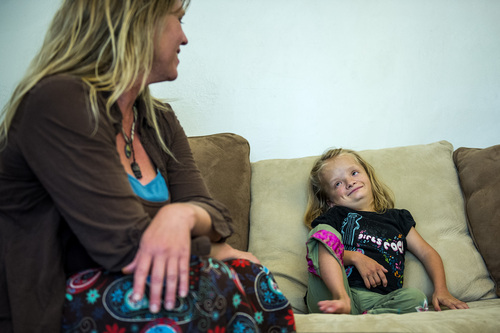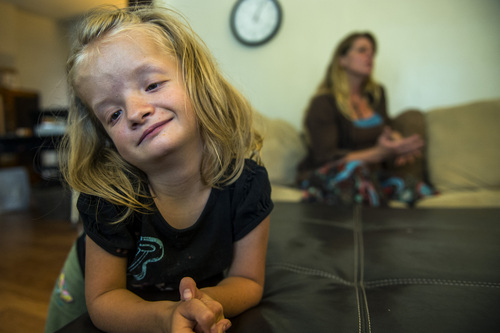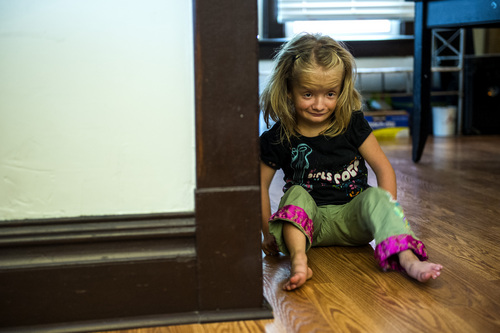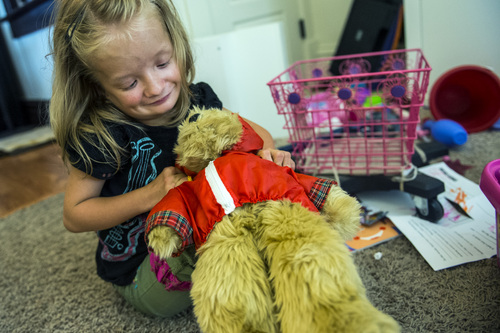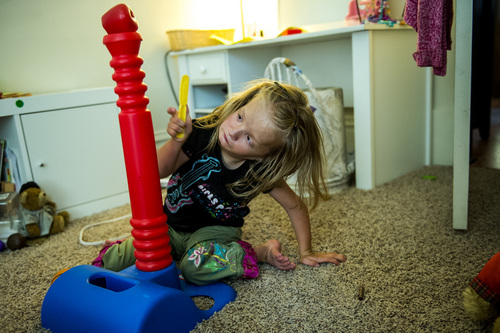This is an archived article that was published on sltrib.com in 2014, and information in the article may be outdated. It is provided only for personal research purposes and may not be reprinted.
Salt Lake City mother Angie Watson is hoping for what once seemed impossible: She wants to see her 12-year-old daughter, Alexis, born with a rare genetic disorder, begin regular first grade this fall.
Alexis Watson was born weighing 1½ pounds, and doctors said if she lived, she'd likely do little more in life than stare at the ceiling, her mother said. Instead, Alexis has surpassed everyone's expectations, although her physical and cognitive growth are still dramatically delayed — she is the size and at the cognitive level of a 6-year-old.
Seeing her daughter in a regular first-grade class "is like a parent's dream kind of come true for their special-needs kid," Watson said, "when you've been told for so many years she'd never do anything."
The Salt Lake City School District has denied Watson's request, telling her Alexis should be in a seventh-grade special-education class with kids her own age, her mother said.
She hopes district officials change their minds, but, in the meantime, she's decided to call school districts across the state to see if any of them will allow her daughter into a regular first-grade classroom this fall.
Jason Olsen, a Salt Lake City district spokesman, declined to comment on the specifics of Alexis' case, citing privacy laws. But, he said, "We are aware of the situation and will be working with the parent to provide the best possible solution for her student."
—
'She's ready' • For the past eight years, Alexis has been in special-education classrooms with an aide assigned to her all day, first in Heber City and then in Salt Lake City, her mom said.
Regardless of whether she stays in special-education classes or goes to a regular classroom, she'd still need an aide throughout the day to help her communicate and move.
She doesn't walk and uses a small wheelchair at school. She also has trouble speaking, so she uses sign language.
Watson said at first, she was going to go along with the district's plan to send her daughter to a special-education seventh-grade classroom. She said she's been pleased with the district's special-education program in past years.
But during the summer, she's noticed her daughter growing.
Alexis plays with the 5-, 6- and 7-year-olds on her street. She's starting to read, add and subtract.
"I kept looking at her, and her academics and where she's at intellectually, and she's at a first-grade level," Watson said Thursday as Alexis scooted around the floor of their home, playing with toys. "Academically, she just continues to prove she's ready."
Nothing in federal education law prohibits a seventh-grade special-needs student from being placed in a regular first-grade classroom, said Leah Voorhies, special-education coordinator at the state Office of Education. But the law does require students be educated in the "least restrictive environment," meaning with nondisabled kids their own age, as much as possible, Voorhies said.
Case law also says that it's a civil right of a student to have access to age-appropriate, grade-level appropriate curriculum, she said.
Ultimately, the decision about where to place a special-education student rests with a child's individualized education program (IEP) team, consisting of educators and the child's parent. If the parent and team disagree, the parent may file a due-process complaint and have a neutral hearing officer decide what should happen, Voorhies said.
—
'Why would we tell her no?' • Watson said she's still working with the Salt Lake City district, but she also doesn't want to delay exploring her other options because the school year is fast approaching. She said she's talked with her daughter about going to first grade, and Alexis wants to try it.
"I'd actually like to set a precedent that we are able to actually look at some of these unique kids and figure out some creative alternatives," Watson said.
She said she's never limited her daughter — despite her prognosis.
Doctors didn't think she'd survive birth. Then they didn't think she'd live past age 3.
"When she did it was amazing and she just kept living," Watson said. "I made a decision around that time that I didn't want Alexis to live her life in a bubble just to protect her life and keep her alive. I wanted her to live life."
She's traveled around the world with Alexis — to Spain, Peru and Malaysia.
Alexis' future, however, is unclear. Watson said her daughter is one of only a few people in the world with this particular disorder (4p-, 11p trisomy), which means there's not a lot of past evidence on which to predict her development.
But she's determined to help her daughter live her life as richly as possible, whatever that life may bring.
"I just know her enough to know if she completed first grade, I don't care what happens after that, she would go through her life going, 'I did first grade,' " Watson said. "Now that she wants to try and can academically do it and they're saying no — why would we do that? Why would we tell her, 'No, you can't try.' "


